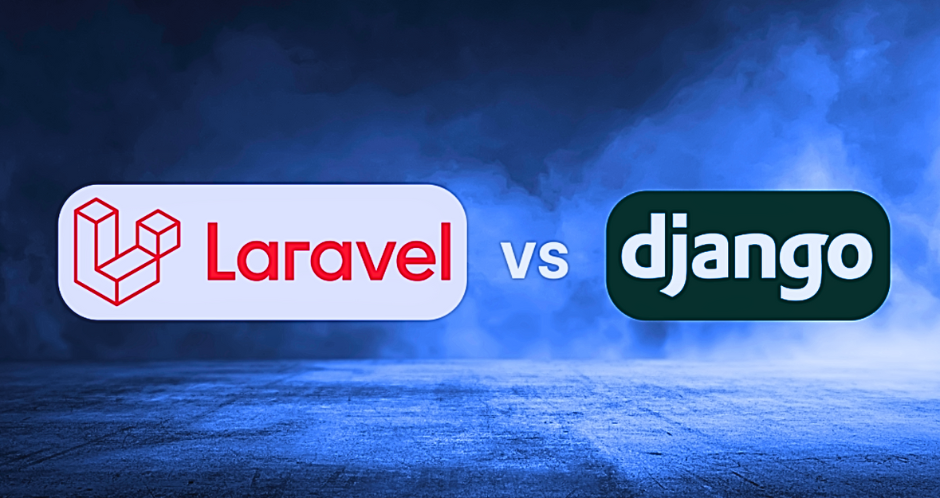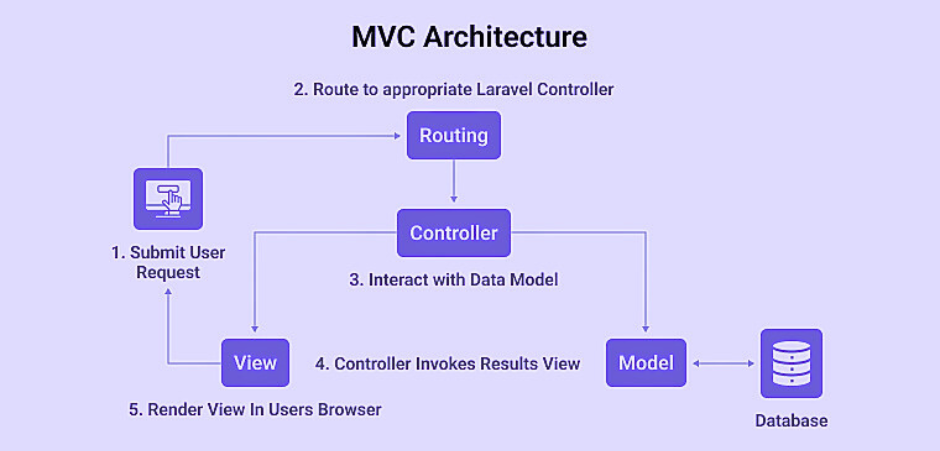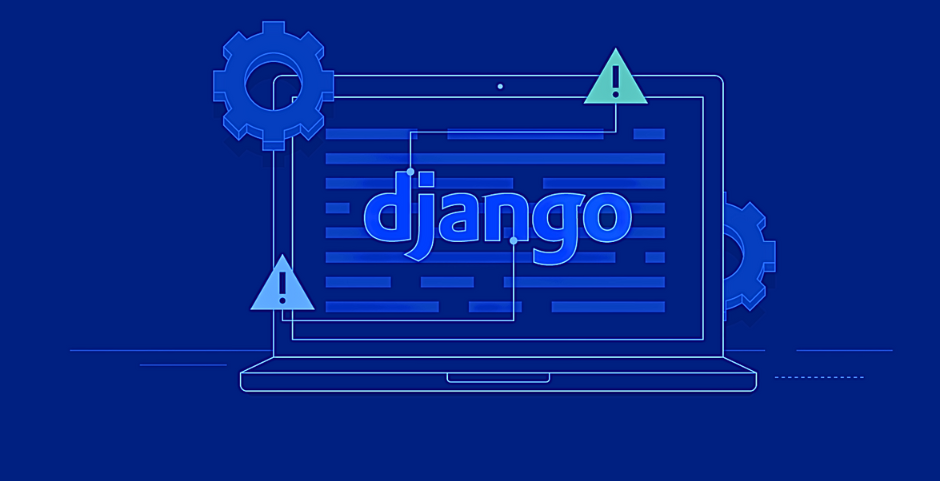Laravel vs Django: Choosing the Best Framework for Your Next Project

If your next project involves building a website or mobile apps, a framework can make your life easier.
Frameworks are a developer's best friend. They streamline the development process, making everything more efficient and reliable. No matter what language you use, there's a framework out there to help you.
Two of the most popular backend frameworks for web developer use are Django for Python-based projects and Laravel, a PHP-based system, each with their own strengths, quirks, and loyal fanbase.
Whether you prefer the syntactic elegance of the Laravel or the "batteries-included" approach with Django, your decision needs to align with your project goals, your style of development, and your team's expertise.
Read on for our in-depth comparison of each framework's performance, architecture, scalability, community, and specific advantages and disadvantages.
-
- What Are Web Frameworks?
- Django vs Laravel
- History of Django and Laravel
- Key Features of Laravel
- Key Features of Django
- Laravel vs. Django: Which Is Better for Web Development?
- Practical Applications
- Django vs Laravel: Future Trends and Prospects
- Django, Laravel, and VPS: A Powerful Trio
- Conclusion: Final Thoughts on Django vs Laravel
What Are Web Frameworks?
Web frameworks handle common low-level tasks, enforce best practices, and offer reusable code libraries, allowing developers to focus on crafting unique features.
A web framework is a set of out-of-the-box tools and components intended to lighten the developer's workload when creating a web application or mobile app. Instead of reinventing the wheel each time, existing web frameworks give a head start by handling most tasks that occur repeatedly in all projects, such as routing, data analysis tools, or object oriented libraries.

Whether you're building customized web applications or complex data-driven platforms, a framework ensures that you don't sweat the small stuff.
Frameworks let you concentrate on the most essential thing: turning your ideas into working code by abstracting away the heavy lifting in your backend development. The best part is that saving time and effort allows you to produce cleaner and more efficient code without getting bogged down in repetitive tasks. When you're ready to build, the web framework greases the wheels for faster development.
Django vs Laravel
The right framework can make or break the success of your secure web applications. Django and Laravel both offer different ways of developing modern web applications.
What is Django?
Django is a Python-based web framework with built-in tools like authentication, administration panel, and ORMs. With sleek and clean code, this is a great framework for rapid development by Python developers.
The Django framework is ideal for the developer who focuses on security and scalability but follows the DRY (don't repeat yourself) principle. Its large community and extensive documentation make it perfect for data-driven applications and complex projects.
What is Laravel?
The Laravel framework is based on PHP and develops beautiful and simple structures. It boasts developer-friendly syntax, but it seldom appears to be cited for it. It makes the most complicated things of web development more digestible to free your inner creativity.
Laravel provides tools for routing, session management, authentication, and more. Laravel works beautifully with MySQL, PostgreSQL, and almost every other database. But it really shines for projects that require flexibility and scalability, like those with a data access component.
Tools like Blade templating, Eloquent ORM, and artisan command-line utility make the web development process smooth and enjoyable in the Laravel ecosystem. If you are looking for a PHP framework to help you develop robust web applications in less time, then this might be your favorite choice for development.
History of Django and Laravel
Django and Laravel have interesting origins. Learning the history of these frameworks came from might give you a good sense of why they're so popular today.
Django was written in 2003 by Adrian Holovaty and Simon Willison while working on a newspaper website. They developed it to speed up development for robust web applications.
Since its public release in 2005, the Django Software Foundation has grown it into a high-level, rapid-development framework with many features that let people build fast, secure sites. This particular framework is preferred among developers because it enables rapid deployment, even for the most complicated projects like investment fund management interfaces. The Django community is loyal and boast that it's the most performance focused web framework.
Laravel, written by Taylor Otwell, was released in 2011. Taylor wanted to provide a web framework with more elegant syntax and better tooling. Since then, Laravel has become a framework that PHP developers count on for its simplicity and flexibility. A developer-friendly platform, it has grown rapidly and is widely used from minor websites to scalable applications.
Both frameworks arose from the need to make software development easier, and today, they continue to evolve with their communities through comprehensive documentation.
Key Features of Laravel
Laravel is widely recognized for its beautiful syntax, rich feature set, and dedication to developer experience. Whether you are just starting out or an experienced developer, Laravel tries to make the web application development process smoother and more enjoyable.
Here are some key features that have made the Laravel framework a go-to for structuring robust, scaling web applications.
Elegant MVC Architecture
One of the biggest draws of Laravel is its clean implementation of MVC (model view controller) architecture. This separation of concerns is priceless when developing web applications because it organizes your logic, presentation, and database interactions.

By keeping all things in their correct place, Laravel will enable you to craft more maintainable, scalable applications. If you like structure and neat code, you will feel right at home working with Laravel's MVC architecture and user interface.
Eloquent Object Relational Mapping (ORM)
Eloquent ORM is an intuitive way of interacting with the databases in Laravel. You can communicate with your database using simple and expressive syntax instead of writing complex SQL code. In Eloquent, declaring relationships between tables is straightforward, and you can retrieve, insert, or update data with a minimum of code.
Blade Templating Engine
Another powerhouse that Laravel offers is the Blade templating engine. Blade allows you to build dynamic web pages without messy HTML. If you are tired of wrestling with bloated templating systems, Blade simplifies your life with an extremely simple syntax while still providing the flexibility and control you want on your front end.
Built-in Authentication & Authorization
Honestly, doing authentication from scratch is a pain. Laravel has made your life easier by including user authentication and authorization out of the box. With a couple of artisan commands, you can scaffold a complete user authentication system, making a safer web framework.
The default package with Laravel includes user login and registration, password resets, and permissions out of the box. This is the most critical security an application could have, and Laravel's built-in authentication feature can eliminate many common security errors.
Artisan Command-Line Tool
Artisan, in general, is your right-hand assistant for all development work. It's a command-line-driven utility that can automate repetitive tasks—database migrations and seeding are just a couple of examples—and even scaffold basic code structures, all without having to use your text editor. For Laravel developers who appreciate efficiency, Artisan will be one of your favorite features.
Security Features
Laravel takes security very seriously. It has various built-in security features, including hashed passwords, protection against CSRF, and prevention of SQL injection.
Regarding password storage, Laravel uses the Bcrypt Hashing Algorithm, which ensures your user credentials are encrypted and secured. Another great thing about Laravel is that it provides an out-of-the-box, easy way to implement secure user authentication. If you want to safeguard your application, Laravel has got you covered with its integrated security measures.
Key Features of Django
Currently, one of the most sought-after Python-based web frameworks is Django. Due to its philosophy that it comes with everything included out of the box and emphasizes simplicity and practicality, it is ideal for any developer who wants to create complex web applications as quickly and efficiently as possible.
Let's examine some of the features that make it a leading web framework.

Application Architecture
Django follows the Model View Template pattern, much like MVC architecture; however, there is a difference in some critical areas. The framework handles much of the control logic, and you, as a developer, will focus on making models of your data structure, views that house your business logic, and templates representing your presentation layer.
The due separation of concerns allows for writing clean, maintainable code without getting bogged down by the boilerplate. Django's Model View Template architecture is a breath of fresh air for developers that desire a clean, streamlined execution and code compilation.
Batteries-Included Philosophy
Django's most-loved feature is its concept of "batteries included," meaning Django comes with a vast range of features and tools right out of the box.

Whether it's an administrative panel, handling forms, creating dynamic websites, or even an ORM to interact with databases, Django developers are among the most efficient in the web development world because of the versatility of their framework. No more hunting for third-party libraries to do trivial things.
ORM for Database Interactions
Perhaps one of the best ORMs out there belongs to the Django framework. Interacting with databases is easier than writing Python code. The ORM (Object Relational Mapper) will even allow you to easily create complex queries and manipulate your data across multiple database systems like PostgreSQL, MySQL, and even SQLite database.
The Object Relational Mapper syntax in Django is both powerful and intuitive. You'll be able to spend your time on the important stuff, namely, the actual building of your application, rather than with SQL syntax. Django's ORM will be your friend if you like simple, elegant code.
Built-In Admin Interface
This is where Django outsmarts other frameworks. By default, Django provides a fully featured and customizable out-of-the-box admin panel where you can manage data without creating an admin panel yourself.
The feature is most helpful for project managers, clients, and Django developers to manage data for your Django project without creating a user interface from scratch. The Django admin interface saves you a lot of time, freeing you up to build features instead of administrative tools.
Security at Its Core
The Django software foundation takes security very seriously in a world where data breaches and security vulnerabilities are rampant. Built-in protection against many common web vulnerabilities (like XSS, SQL injection, and CSRF) provides an instant layer of security.
Django's built-in security system, including safe password hashing and safe user authentication system, ensures that your app is secure the minute you start building it. If security is a concern for you, then Django's commitment to protecting your app makes it a trustworthy option.
Laravel vs. Django: Which Is Better for Web Development?
If you are trying to select the best web framework for web development, then the battle of Laravel versus Django always comes in the minds of developers. Each of these prominent web frameworks is very influential, but either of them can be far better for your next project. Let's dive into how they stack up.
If you love PHP and wish to work in a web framework known for its elegance and simplicity, then Laravel is your best option. Its cleanliness in MVC architecture, vast libraries, and active community make Laravel easy to use. This is ideal for beginners and developers who want a secure web framework that is easy to set up and comes with tools like Artisan CLI to make routine tasks easier.
Otherwise, Django might be a better fit if you're using Python as your programming language. Django's "batteries-included" philosophy means you get everything out of the box to kickstart your first web app development from user authentication down to an admin panel. It also offers security, scalability, and is ideal for handling complex web applications. Additionally, Django's Object-Relational Mapper (ORM) makes working with databases a breeze.
Ultimately, when deciding between Laravel vs. Django, it comes down to your needs, programming language preference, and project goals. Whether you choose the fast scalability of Django or the flexibility and ease of usage of Laravel, both web frameworks will help you develop a strong and efficient web application.
Practical Applications
Laravel Use Cases
E-commerce sites: Laravel's scalable and robust MVC architecture can be used to develop feature-rich e-commerce sites with many functionalities, including product management, payment gateway, and user authentication.
Content Management System: If you are building a custom Content Management System (CMS), Laravel's flexibility combined with the Blade templating engine creates dynamic and user-friendly solutions in content management.
API Development: Laravel natively supports the development of RESTful APIs and is, therefore, ideal for building secure and scalable APIs that power mobility, web apps, or other services.
Social Networking Sites: Ready to produce the next viral video? Laravel offers features for an authentication system and database management that can meet the demands of robust social networking sites.
SaaS Platforms: Laravel provides up-to-the-minute productivity boosters within SaaS subscriptions, like the Artisan CLI and Queue system, which are crucial in sustaining performance and scalability.
Django Projects
Enterprise Applications: It covers a wide area of scalability and security features, making Django the first choice for use in enterprise-wide mission-critical and data-driven applications with complex business processes.
E-learning Platforms: Django's powerful ORM and templating engine streamline the process of managing user interactions with course content in real-time, making it an ideal choice for educational websites.
News and Publication Websites: Django, because of its admin panel and development speed, is better for news portals or blogs or other content-heavy projects that require speed, security, and SEO tools.
Health Care Systems: A healthcare management system requires HIPAA clearance to secure user data. Django's strong focus in this aspect is a great advantage.
Scientific and Data-driven Web Applications: The utilization of Django in building scientific or analytical web applications varies in scope, facilitating robust database management, scalability, and integrating Python for data processing.
Django vs Laravel: Future Trends and Prospects
Looking ahead to the future of Django and Laravel, both frameworks will continue to expand and change according to the evolution of web development. Laravel is still the darling of the development community because it's easy to work with and has an active community.
It is definitely going to work for small to medium-sized projects and fast-growing startups. This, therefore, means that Laravel will probably keep evolving with changes in PHP itself and innovations in API development and serverless architecture.
While Django has already secured a place in big data, machine learning, and AI-driven applications, Python will dominate these areas in the near future, too-so will Django for large-scale projects needing security and scalability.
So, the next time you go to decide between Django vs Laravel on your next project, consider the future of web development and pick out any specific trends relevant to your line of work. While both frameworks have bright futures, they also have slightly different needs that they are going to be able to accommodate.
Django, Laravel, and VPS: A Powerful Trio
One of the best ways to structure your next web app is to combine the powers of Django, Laravel, and a VPS. Whether you prefer Python's elegance with Django or PHP's simplicity with Laravel, both frameworks provide everything you need to build robust, scalable applications.
Once more, selecting the right hosting platform is a critical decision; that is where the VPS servers come into play. The VPS or Virtual Private Server gives your application complete control and better security for improved performance with dedicated resources.
With the strengths of Django, Laravel, and a VPS server, you are comfortably in a position to develop, deploy, and scale any application. Whether you're a seasoned developer or a newbie, this is your power trio to ensure success for your project. Having the right tools in your development toolbox makes all the difference.
Conclusion: Final Thoughts on Django vs Laravel
When it comes to choosing the best web framework for web development, the battle of Laravel vs Django is paramount. Each of those frameworks is extremely powerful in their own right, and either of those could be better for your next project.
This would be a valuable addition if you love PHP and want to work in a web framework known for its elegance and simplicity. It is ideally suited for enterprise-level applications, data-driven platforms, and large-scale websites.
One thing is certain: no single answer exists between Django and Laravel. Yes, both frameworks are robust, capable, and efficient in their respective ways. The best answer just narrows down to the exact needs of your web application, the language you are used to working with, or a long-term vision for your project.
Frequently Asked Questions
Why use a web application framework?
A web application framework simplifies the web application development process by using prewritten components, reducing repetition, and enhancing security. It also promotes consistency and scalability with faster development. With existing web frameworks, developers can concentrate on building features rather than imploring low-level functionalities from scratch.
Which one is easier to learn, Django or Laravel?
In terms of the debate between Django vs Laravel, the consensus is that Laravel is easier to learn, especially for those who are just starting in the web development world. Its elegant syntax in PHP is very simple and well-documented, so it is friendly for beginners. While Django's similarities are well-documented, grasping them might require a bit more effort because of Python's intricate structure and conventions.
What is the Django Software Foundation?
The Django Software Foundation is a nonprofit organization that promotes, protects, and advances the Django framework. It develops the framework and manages the finances needed to run community-driven initiatives that ensure an active Django community environment where members can collaborate on projects and share resources.








.png)


